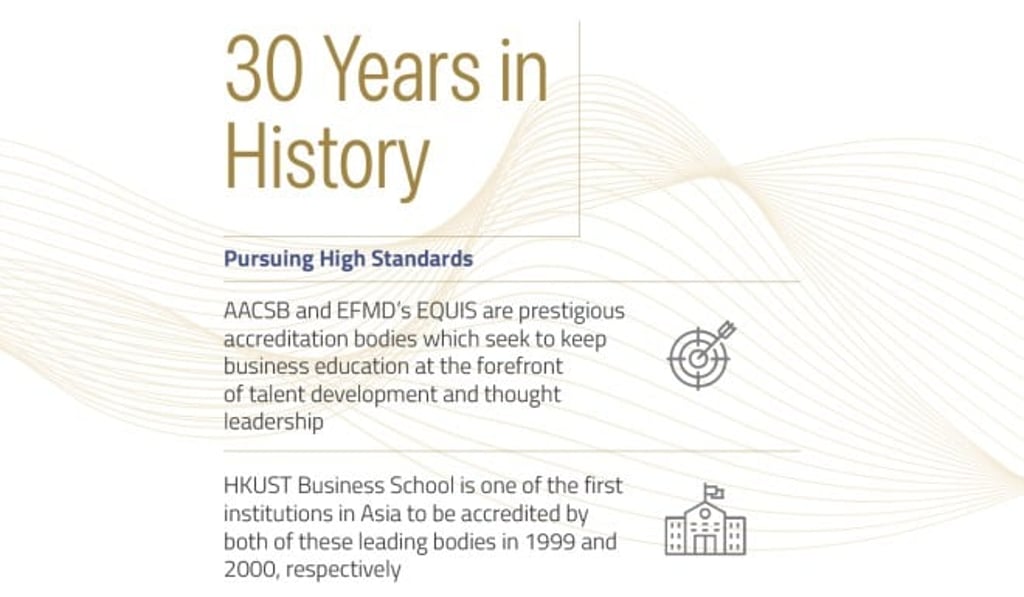
[The content of this article has been produced by our advertising partner.]
Accreditation systems help institutions foster international partnerships, and this can increase their impact on society.
A good reputation and high rankings are no longer enough for business schools. In a globalized economy, international accreditation and quantifiable benchmarks are important ways of providing an internationally recognized framework that testifies to a school’s quality, its long term viability as a partner, and its potential for development and growth.
According to Professor Eric CORNUEL, the President for EFMD Global (EFMD), a rigorous accreditation system does not just rely on a few criteria that vary from year to year. A good system gives an accurate and comprehensive picture of a school’s offerings, its ethos, and its value for students and partners, he says.
“It allows us to identify leading institutions in terms of their perceived excellence, and also in terms of their commitment to continuous improvement and the impact imperative,” Cornuel explains.
Accreditation also encourages business schools to hold themselves accountable for improving business practices through a commitment to strategic management, learner success, thought leadership, and societal impact, says Caryn BECK-DUDLEY, President and CEO of AACSB International (AACSB). Founded in 1916, AACSB is one of the world’s oldest and most recognized accreditation bodies.
Building trust
After the 2008 financial crisis, when levels of distrust in financial institutions soared, business education institutions suffered damage to their reputations. Accreditation is an opportunity to earn society’s trust, and to show that business schools are working on research and development projects that truly address global concerns.
“Earning an international accreditation, like AACSB accreditation, signals that a business school’s long-term commitment is to do more than deliver the best in business education. The accreditation shows the school will continually innovate and evolve to the needs of the global economy, and the demands of students, dictate,” Beck-Dudley says.
It’s hard to disagree with the idea that global businesses face a host of challenges. The impact of technological development, shrinking natural resources, and changing global dynamics all play a role. Such challenges cannot be tackled by one institution alone. Accreditation allows for international partnerships that foster cooperation, and this can increase their impact on society.
“International partnerships and cooperation networks help schools amplify their aggregated impact and drive innovation through the exchange of good practice. They also build trust in the education systems,” Cornuel says.
AACSB and EFMD are prestigious non-profit accreditation bodies with memberships in over 100 countries and territories. Such bodies bring together some of the best minds in business education, business leadership, and business learning, and this keeps business education at the forefront of talent development and thought leadership.
A global mindset
“Our collective strength is founded on diverse perspectives, with a global mindset, and commitment to creating a positive impact on society. This creates opportunities for collaboration to guide business schools globally,” explains Beck-Dudley.
Being part of such a large accreditation body benefits students, too, as it gives them access to a global network of business leaders and professionals. This has been one of the key selling points of the HKUST Business School.
The Business School is accredited by AACSB and the EFMD’s EQUIS, which means that it is constantly working with over 1,500 members to elevate its quality, and to promote the value of business education around the world. The Business School is one of the first business schools in Asia to be accredited by both of these leading bodies, and the incumbent dean, Professor TAM Kar-yan, also sits on their boards.
With a growing number of students wishing to study and work outside of their home countries, as well as a proliferation of online learning that transcends borders, having access to such an international network inevitably makes the learning experience a far richer one for students.
For example, students studying at AACSB-accredited business schools attend schools that have access to a global network of business professionals through AACSB’s Business Education Alliance. Students can utilize the benefits of their school’s AACSB accreditation to gain insight about the business school journey, as well as to engage in career preparation.
Expanding opportunities
The role of technology will, no doubt, play a big role in this as business education moves into the future. It will fuel more collaboration amongst institutions, and in business education itself, Cornuel says. “Technology has become an inherent part of the educational landscape, and it affects the world of work. This expands our opportunities to reach more people through the lifelong learning trajectory,” he says.
Accreditation can be a way to bring great minds together on an overarching mission to do good for society as a whole. According to Beck-Dudley, the world we live in is more interconnected than ever, and there is greater awareness amongst students that we need to rely on each other for survival. For this reason, there is a heightened sense of awareness of the need to address issues, and a greater emphasis is placed on working together to solve society’s problems, such as the global health crisis.
Being part of this mission to foster engagement and accelerate innovation is one of the many ways that students will be able to make an impact. “We’ve also become more comfortable with change, and I look forward to that agility being the catalyst for lasting, memorable transformation,” Beck-Dudley says.
The pandemic, and an increasingly complex geopolitical context, have shaken up established cooperation models, international mobility as well as teaching and learning. “We’ve learned valuable lessons along the way, which will make us more resilient and more innovative,” says Cornuel.
